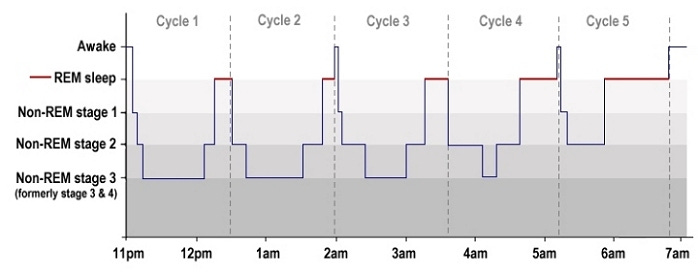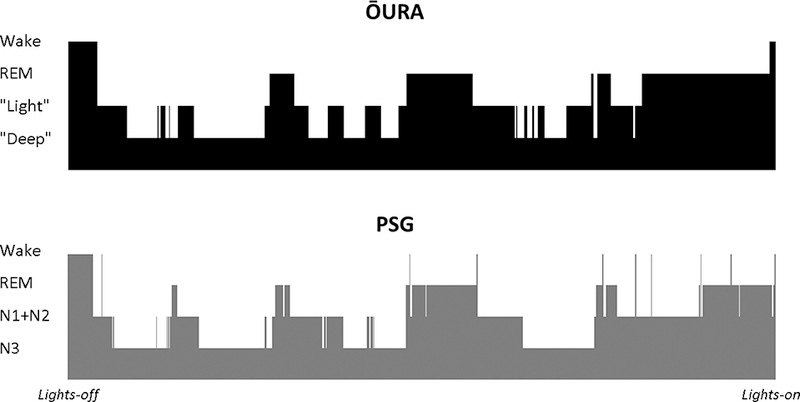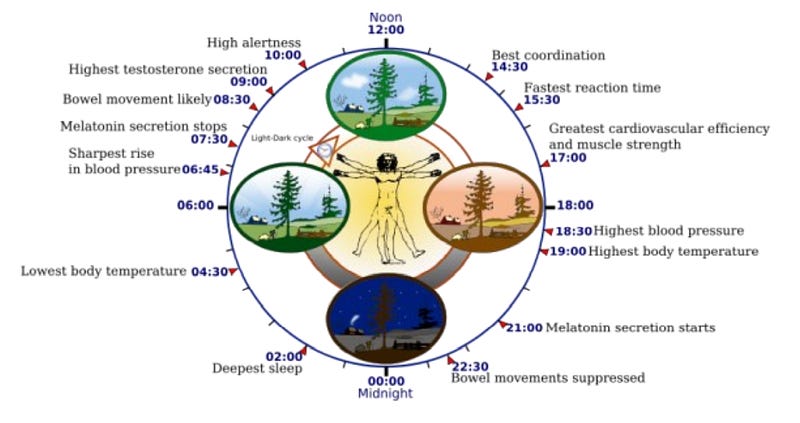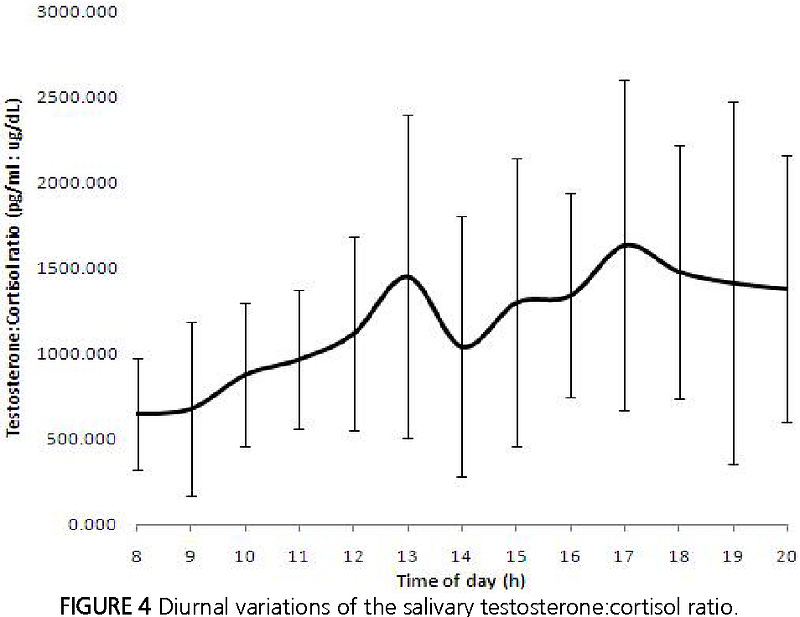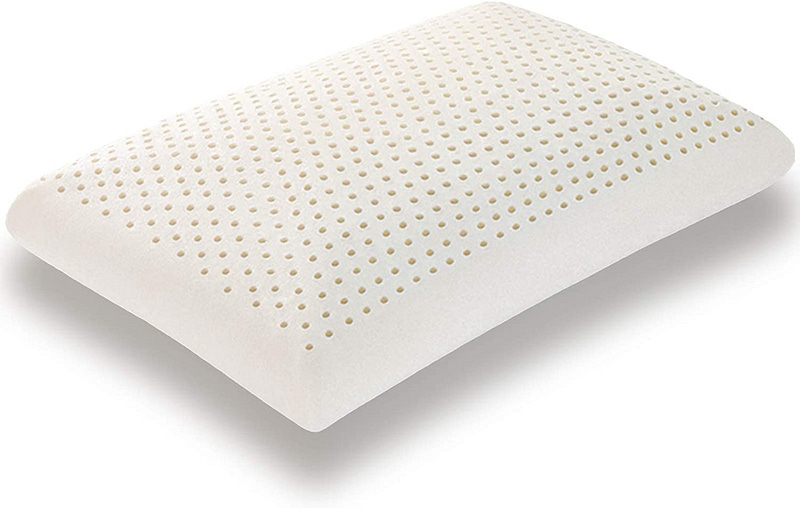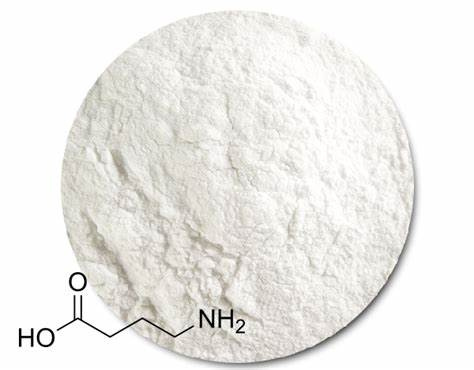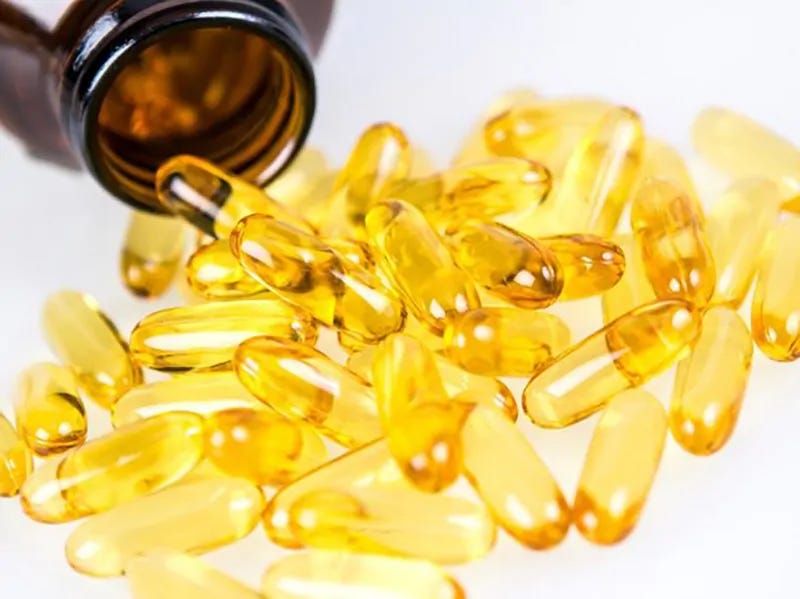Simple, evidence-based steps for sleep optimization
Till now, I have posted trading-related content mainly of technical nature. But being a trader is a performance-dependent job, just like…
Till now, I have posted trading-related content mainly of technical nature. But being a trader is a performance-dependent job, just like sports.
Few people are aware that before taking the full-time trading route, I knew a thing or two about sports sciences and nutrition, and easily the most important factor that affects both our mental and physical performance is sleep. So why not write an article about how to optimise it?
In this day and age, sleep is often viewed as a waste of time. After all, the more you sleep, the less time you can allocate to working, overall productivity, friends/family or your videogame backlog. Right? Well, let’s see why you probably should reconsider your priorities a little bit, starting with why do we sleep:
This article is sponsored by SaviusLLC.com and VolumetricaTrading
What is sleep?
While overall, it’s still a topic of debate among scientists, the consensus is that sleep is definable as an “altered state” that is necessary for most mammals to survive. Sleep is categorized into three stages of non-REM sleep in addition to REM sleep. [1] In order:
Stage N1–2
Also called “light sleep”: Stage N1 starts with drowsiness, setting up the body for stage N2, where more stable sleep occurs via progressively reduced heart and respiratory rate, shifting the nervous system from sympathetic dominance to parasympathetic dominance.
Stage N3
Also known as “deep sleep”: body functions here are at the lowest rate (Slow-wave sleep). This stage is particularly important for physical restoration. In fact, deep sleep has been associated with increases in GH production [2]. Our time in deep sleep varies mainly according to lean body mass development and age. The more active and physically fit person is, the higher the time required to be spent in the N3 phase is.
Stage REM
In this phase, blood pressure, cerebral blood flow, heart and respiratory rate rise, whilst muscular tension is still being kept to baseline. Dreaming takes place here. Nerve cell activity exceeds the waking state, and eyes start to move rapidly, underneath the eyelids, following the contextuality of the dreams. REM phase is critical for memory reprocessing and learning [3]. Adenosine gets cleared, and new synaptical connections form within the neurons in the brain.
On average, individuals who are over the infancy state (2+ years old) experience 4–6 REM phases each night of sleep. Each full sleep cycle (N-1 => N-2 => N-3 => REM) lasts 90 minutes.
Known effects of sleep deprivation:
Decreased cognitive functioning
Sleep allows the replenishment of synaptic and cellular homeostasis. During the day, our brain is challenged by new tasks that induce plastic changes to process the new pieces of information. This causes synaptic strength, which is a costly energy process. During the sleep phases, synaptic strength decreases to maintain homeostasis. Lack of sleep disrupts this delicate equilibrium.
Sleep is also an essential part of memory reprocessing. Let’s say that you have performed the back squat during your morning workout. Your motor cortex will practice the squat movement pattern again when you’re asleep. In brief, new tasks and skills are better learned and memorized if you sleep in between the sessions. Not getting enough sleep will decrease your capacity to retain and connect new pieces of information, making you a slow learner.
These two points by themselves should suffice to explain why lack of sleep leads to decreased cognitive functioning during the day, but further effects on cognitive functioning can be read here: [4]
Decreased well-being.
Irregular circadian rhythms are associated with depression and seasonal affective disorder (SAD) [5].
Unfavourable alterations in nutrient partitioning, increased appetite and insulin resistance.
Sleep deprivation makes you hungrier, more prone to store body fat from an energy surplus (hence the worse nutrient partitioning) and closer to developing prediabetes [6] [7] [8]. Just to let you understand how important are the effects of sleep deprivation on body composition, It has been found from Xuewen Wang et al. (2018) that sleeping as little as 40 minutes less during the midweek caused the ratio of lean to fat mass lost to shift from 20% lean mass loss to 80% lean mass loss [9]. In brief, if you’re currently on sleep debt, getting enough sleep can make you gain more muscle and lose fat without exercise or dieting, providing that your calorie intake remains the same. More to this point, consider that reducing total night sleep time from 8 to 5 hours per night is enough to decrease basal metabolic rate by 2–8% [10].
Decreased testosterone production and increased cortisol secretion.
In research, it has been shown that sleeping five hours a night can decrease testosterone production by an average of -13% [11]. Whilst one night of sleep deprivation can spike cortisol production up +40% [12]. So, want to be a Chad? Make sure to sleep enough! And this brings us up to the next point.
Now that you have a baseline level of knowledge related to sleep stages and dynamics, you should be already aware of sleep’s importance.
However, let’s explore a little more the known effect of sleep deprivation and try to define how much sleep is enough for optimal physical and mental performance.
How much sleep is enough for optimal mental and physical performance?
Providing that you’re an actual human being, sleep recommendations for adults between 18–60 are 7+ hours per night [13], as most of the negative outcomes caused by sleep deprivation tend to be experienced when less than 7 hours of sleep are accumulated on a day to day basis.
In research, there is also an association between excessive sleep -in the absence of existent sleep debt- with health risks due to the correlation of depression symptoms. Still, there are no direct findings on human physiology related to “too much” sleep alone. In short, it’s unlikely that sleeping too much poses serious health risks.
Advanced weightlifters, Olympic athletes, and more in general strength trainees benefit greatly from 9+ hours of sleep per night due to the higher deep sleep requirement, as discussed in the N-3 stage section of the article. But if you’re a sedentary individual, you may just get away with 7.5h of good-quality sleep.
Note that sleep debt is cumulative in a linear fashion: If you subtract 1 hour of sleep per night per 7 days, you basically lost a whole night of sleep.
Take a nap, or not…
Nowadays, power naps are trendy, with certain workplaces even setting up nap pods. But does the evidence support the hype?
This study from Hsen Hsouna et al. (2019) [14] shows the positive effects of naps on overall stress. However, unless you get into a full sleep cycle (90 minutes), you won’t enter the N-3 stage (deep sleep). Therefore, I’m sorry to disappoint polyphasic sleep enthusiasts here, but naps are no replacement for night-time sleep.
Do you want to try now a highly customisable and easy-to-use trading platform for doing order-flow and AMT analysis on the futures markets?
Check now VolSys and VolBook from VolumetricaTrading! Use the following coupon: FRL10DS to receive a 10% discount at the checkout!
Both VolSys and VolBook are compatible with Savius Limitless challenges! Use the coupon code lazor100 at the checkout to receive a 100 EUR discount on your Limitless challenge!
How to measure sleep quality
Sleep trackers, which are available to retail users, sadly seem to be reliable only to quantify total sleep time. When it comes to measuring actual sleep stages, the tests against polysomnography (PSG) tend to give not such reliable data [15].
A new device called “Oura ring” gave some promising evidence of somewhat reliable sleep stages detection against polysomnography [16]. Still, the device is quite expensive, and the study was conducted on a small subset of young individuals.
Even if you don’t have a sleep tracker, ask yourself: are you able to wake up without an alarm every day at the same time? Do you feel refreshed and ready to load up Sierra Charts when you wake up?
If not, you might want to find a way to sleep more and optimise your sleep hygiene. And this brings us to the following main point.
Sleep optimization
Sleep optimisation can be achieved via behavioural and nutritional interventions — most of the behavioural interventions for achieving good sleep act by regulating the circadian rhythm.
What is the circadian rhythm?
The circadian rhythm is viewable as a 24 hours cycle of biological activity, which is conventionally intended as the sleep-wake cycle, but in reality, it influences each system within our bodies.
The suprachiasmatic nucleus (SCN) is a whole part of your brain dedicated to regulating your biological clock. It has built-in molecular oscillators which function as a pacemaker [17]. It controls melatonin secretion, core body temperature, cortisol release, and many other vital functions over 24 hours and 15 minutes on average, but it may vary a bit between individuals. In fact, most of the people who experience serious sleep disorders have a non-24 circadian rhythm. It interacts with all the systems of our bodies, telling them literally what time it is, and regulating their biological activity.
You can intuitively experience this kind of regulation by trying to fall asleep at a different time all of a sudden. Also, guess why roughly you get hungry roughly at the same hours? Because through habit formation, you programmed your SCN this way.
Your biological clock has to be aligned with your lifestyle. An unaligned biological clock can quickly disrupt our performance and health. See what happens with the jetlag syndrome [18]: travelling to different timezones causes very evident effects on each body system in a short timeframe: not falling asleep; nausea; brain fog; lethargy; sudden hunger OR complete lack of hunger etc.
Manage the zeitgebers.
Having a regular biorhythm is critical for achieving good sleep. Biorhythm is heavily influenced by zeitgebers, which are not aliens, nor angry german people, despite how the word may sound to you.
Zeitgebers means “time givers” in german, which are those environmental factors that regulate circadian rhythm (biological clock). Light, sounds, temperature, food, and physical activity are all zeitgebers.
Sleep quality is sensitive to irregularities in the biological clock, and the key to a regular biorhythm is to have a stable lifestyle [19].
Zeitgebers management suggestion number 1 — be regular:
The key basic recommendation is to maintain a regular eating, training and sleeping schedule. A margin of error of 1 hour is acceptable since we’re biological systems, not machines or NPCs. But if you keep messing around with your dinner time in 2+ hours ranges, that can be an issue.
Zeitgebers management suggestion number 2 — praise the sun! But keep the lights out:
Unsurprisingly, light is the most important zeitgeber, which plays a direct role in setting up your biological clock.
Research found that bright blue light spectrum light exposure in the first part of the day improves sleep quality, wellbeing and productivity [20].
The absence of sunlight exposure during the day is directly linked to seasonal affective disorder (SAD). So, consider allocating some time for a morning walk, also for getting your vitamin D. The benefits are quickly noticeable. And if you can’t due to the seasonality, getting a full-spectrum lamp is highly advisable.
While blue spectrum light is beneficial during the day, it’s not helpful during nighttime. As we’ve seen, light exposure signals your body that it’s time to be active and awake. Blue light exposure halts melatonin production [21]. Melatonin is a hormone derived from serotonin that has a critical role in falling and remaining asleep.
The obvious recommendation is to avoid light pollution by installing black-out curtains on your windows and turning off your electronic devices’ LEDs.
What about staying at the PC late? Back 3–4 years ago you had to install F.lux to change your monitor’s light spectrum. Nowadays, almost any OS these days has the same functionality by default. Just turn it on at sunset and adjust your monitor’s backlight down. An intensity of 1900k should do the job.
Want to trade Crypto Derivatives with high liquidity and low fees? Try WOO X now!
Zeitgebers management suggestion number 3 — check your macros.
Allocating the majority of carb intake in the second half of the day tends to improve the biorhythms of leptin and adiponectin, leading to better appetite control, nutrient partitioning, and therefore, better fat loss. Specifically, adiponectin release improves carb tolerance, inflammation, energy expenditure, nutrient partitioning and satiety.
For sleep optimization, consuming most carbs in the second half of the day is related to melatonin secretion via serotonin production. In fact, consuming carbs later in the day is associated in research with better mood, compliance and sleep quality. That’s because carbs and protein increase tryptophan uptake to the brain. Tryptophan is an amino acid that acts as a precursor to serotonin. You know by now that serotonin gets converted to melatonin if you’re mindful of your lights management.
In a nutshell, if you want to sleep better, your last meal of the day should be rich in easily digestible protein and carbs [22].
Fat intake is better skewed to the earlier part of the day, as it improves the bioavailability of fat-soluble vitamins and slows down digestion, enabling a more steady energy influx across the day. If your last meal of the day is rich in fats, digestion may overlap with your sleep, worsening overall sleep quality. And that’s also why you may want to have your last meal of the day 2 to 4 hours before hitting the sack.
Zeitgebers management suggestion number 4 — keep it cool and quiet.
Temperature and sounds are zeitgebers. Both excessive cold and heat can worsen sleep quality. The ideal temperature for optimal sleep lies between 19–21 celsius degrees [23].
Thermoregulation plays a direct role in regulating sleep [24] being warm and comfy reduces sleep onset. Therefore taking a warm shower before going to bed may work as a sleep aid.
Last but not least, environmental noise directly impairs sleep quality [25]. The real culprits here are irregular noises. Regular, constant noises, like the sound of a fan or a white noise, can, in fact, work as a sleep aid. Do whatever is possible to make your bedroom quiet. If you regularly hear irregular noises, you may want to consider soundproofing your bedroom or wearing was earplugs.
Further optimisation.
Try to train in sync with your circadian rhythm.
Testosterone production rises in the evening. Peaks very early in the morning and then decreases across the day [26], while instead cortisol is low during nighttime, rises abruptly during awakening and then decreases over the course of the day [27].
From the behaviour of these two hormones, we can derive the so-called T/C ratio, aka the ratio of testosterone to cortisol. You should already know that testosterone is anabolic, while cortisol is catabolic. The T/C ratio is the highest in the afternoon and the early evening [28], making this time window ideal for scheduling your training session. However, this is more fine-tuning than anything else. The most important thing for your circadian rhythm and your sleep, as you already know, is having a regular lifestyle. Therefore being consistent with your training schedule, even if you train early in the morning, let’s say, is the most critical thing that you could do.
Check your mattress
We’ve covered pretty much all the major zeitgebers, but there is still room for improvement, particularly in the realm of supplements. But first, there is another environmental factor that should be checked: your bed.
Sleeping on a good mattress and pillow pays back the monetary investment. In research, most people sleep well on a mattress with a medium hardness level [29]. Personal preference here is dominant, but it should not feel too hard or soft.
A bit of research suggests your pillow to be harder than what you intuitively find most comfortable, though [30]. Latex seems to be the preferred material, while there is no need for special shapes, like so-called “cervical” pillows.
Supplement interventions.
Melatonin
As discussed already, melatonin is a key hormone in sleep regulation. There is a plethora of evidence that supplementing melatonin improves sleep quality whilst making it easier to fall asleep without posing any significant side-effect [31].
Suggested dosage: 3–5 mg taken 30 minutes before going to bed. People with low melatonin production may benefit from going on the dosage spectrum’s higher range. There is some anecdotal evidence that people benefit as well from lower dosages (0.3–1 mg). Self-experimentation is needed here.
GABA
GABA supplementation is linked with higher N-3 stage sleep and better relaxation. GABA is a neurotransmitter whose main purpose is to calm down body systems. Whilst GABA as a supplement does not cross the blood-brain barrier, it still has relevant effects on sleep quality [32].
Suggested dosage: 300–500 mg
There is another form of GABA supplementation, which is called Phenibut. Phenibut is a derivative of GABA discovered in Russia, which crosses the blood-brain barrier. Its effects are more potent than GABA, and it’s also used as a nootropic and an anti-depressant. However, contrary to GABA, it poses a serious risk of addiction if the dosage isn’t managed appropriately [33]. You may want to use a very little spoon in this case.
Another form of effective GABAnergic supplementation is through valerian root [34].
Glycine
Glycine is a conditionally essential amino acid that is found in collagen. That means that we’re able to produce it within our bodies, but our actual requirements are too high to be satisfied through self-production alone.
Glycine supplementation has been shown to improve sleep quality after assessment with polysomnography [35].
Suggested dosage: 3–5g within the day; timing doesn’t matter that much.
Check your minerals and vitamins.
Optimal whole-food-based nutrition should cover your mineral and vitamins intake. However, most people are not following a whole-food-based diet. The most common nutrient deficiencies here are magnesium, vitamin D3 and omega 3s. While there is no direct evidence of these kinds of supplementation to improve sleep quality, these nutrient deficiencies may indirectly worsen sleep quality, so fix them via nutrition or supplementation.
The most bioavailable form of magnesium is magnesium citrate.
Vitamin D should always be taken in vitamin D3 form.
Omega 3 (EPA / DHA) are best bioavailable through triglycerides, but you should make sure that the brand is reliable, as you don’t want to consume oxidized omega 3s.
Magnesium suggested dosage: 200–400mg
Vitamin D3 suggested dosage: 2000–5000 IU
Omega 3 suggested dosage: 1g EPA + 1g DHA
Closing words
That’s pretty much all. I hope that you found value in these insights, and I wish you a good night of sleep after a long day staring at the order book… or Twitter.
Do you want to have the chance to get funded, jumpstarting your career in the financial markets as a professional trader?
Become a Savius Trader!
Receive an 80% profit split from the get-go once you pass the evaluation phase;
Don’t put your capital at risk.
Use the coupon code lazor100 at the checkout to receive a 100 EUR discount on your Limitless challenge!
References
[1] http://apsychoserver.psych.arizona.edu/jjbareprints/psyc501a/readings/Carskadon%20Dement%202011.pdf
[2] Physiology of growth hormone secretion during sleep — PubMed (nih.gov)
[3] Sleep-dependent memory consolidation | Nature)
[4] Sleep deprivation: Impact on cognitive performance (nih.gov)
[5] Consequences of sleep deprivation. — PsycNET (apa.org)
[11] Effect of 1 Week of Sleep Restriction on Testosterone Levels in Young Healthy MenFREE (nih.gov)
[12] Sleep loss results in an elevation of cortisol levels the next evening — PubMed (nih.gov).
[13] http://www.aasmnet.org/resources/pdf/pressroom/Adult-sleep-duration-consensus.pdf
[17]: Stability, precision, and near-24-hour period of the human circadian pacemaker — PubMed (nih.gov)
[22] Bed-time food supplements and sleep: effects of different carbohydrate levels — PubMed (nih.gov).
[23] (Ambient temperature and human sleep | SpringerLink)
[24] Thermoregulation as a sleep signalling system — ScienceDirect
[25] Environmental noise and sleep disturbances: A threat to health? — PubMed (nih.gov)
[26]: Pre-analytical issues for testosterone and estradiol assays — PubMed (nih.gov)
[27]: https://academic.oup.com/jcem/article/95/11/4855/2835169/The-Diagnosis-and-Management-of-Central
[31] Meta-Analysis: Melatonin for the Treatment of Primary Sleep Disorders (plos.org)


